Contact UsCONTACT
Please feel free to contact us if you have any questions or concerns.
Inquiry FormStories
STORIES
SERIES EMBARK
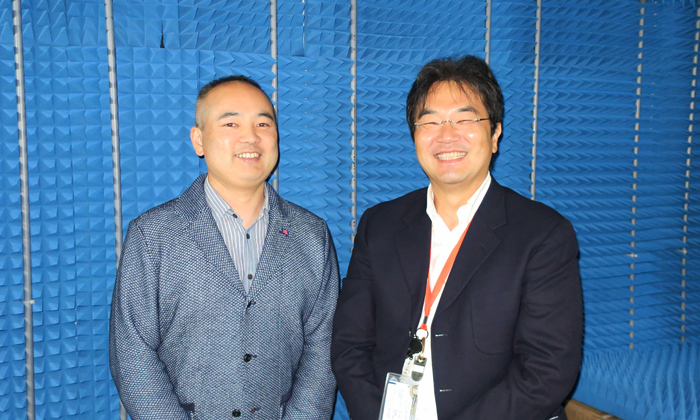
Transmitting power wirelessly using microwaves - that's what Space Power Technologies (SPT) Inc. SPT is aiming to commercialize such a wireless power transmission system. It was established in May 2019 with support from Kyoto University Innovation Capital (Kyoto-iCAP). The company's goal is to create a "power revolution. By enabling wireless power transmission without pulling wires from electrical outlets, the company hopes to create a society in which people can freely use electricity wherever they are. First, the company plans to develop a microwave-based wireless power supply business for picking systems and machine tools in factories. We interviewed Minoru Furukawa, Executive Director, CEO, and Yuji Takeda, Director, CFO and General Manager of Corporate Planning Department, about the background to the start-up and Kyoto-iCAP's support system. (Interviewer: Sae Ito)
I have always been interested in energy, and when I was a student I researched space solar power satellites. Later, I worked for a radio equipment manufacturer, where I developed products for radio equipment used in cell phones and broadcasting-related systems. Since the company was in an environment where independent research was tolerated, I spent my weekdays developing products and my weekends doing independent research on microwave power transmission. This technology is the basis of SPT's business.
The fact that we were able to apply for several patents as a result of our independent research was also a success, and the company chose wireless power transmission as a new business venture. However, my joy was short-lived, as I became busy with my existing business and the wireless power supply business had to be scaled back. I decided to form my own company and start up my own business, and decided to establish SPT.
In fact, I had been enrolled in a doctoral program at Saitama University since I was a former company employee. It was difficult to balance being a company employee and a student, and since I had been on a leave of absence for almost 10 years, I considered returning to school to research basic technology before starting a business. When I was wondering whether to return to school or start a business, a person who had been helping me introduced me to a capitalist at Kyoto-iCAP. When I explained the kind of business I wanted to start, I was told that there was a possibility of receiving support from Kyoto-iCAP, and I was able to make the decision to take on the challenge of starting a business.
The first bottleneck was fundraising. At the time of the company's establishment, CFO Takeda was still working at the NY branch of his bank, so we kept in touch with him and waited for him to join the company, and had Kyoto-iCAP's capitalists handle the CFO's tasks, including fundraising, on our behalf. They provided a wide range of assistance, from visiting investors to copying contracts. It is no exaggeration to say that we established the company in a tripod with the Capitalists.
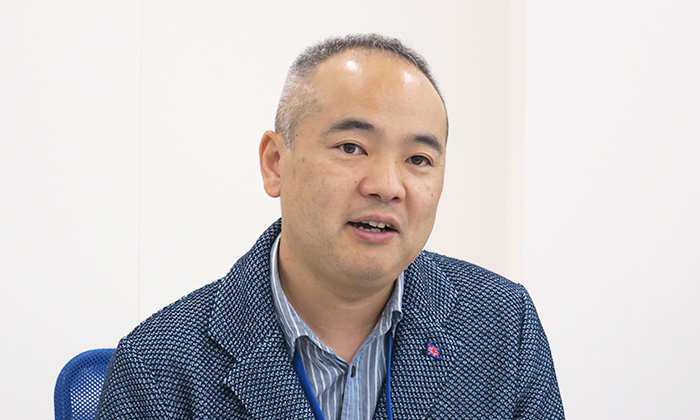
Since starting my career as a banker, I have gained experience in the financial industry. In addition to my interest in finance, I have actually had a longing for science and technology since I was a child. Even while working as a banker, I could not give up my desire to someday have a job based on science and technology. Because of this ambition, when I had the opportunity to meet with the capitalist in charge of SPT, I was surprised to learn that they were doing something so interesting and decided to register as a member of ECC-iCAP first.
At first it was difficult to take the plunge. Leaving a company I had worked for for many years meant giving up the comfort and favorable treatment I had received, so of course I was conflicted. I was able to make the decision largely because Capitalist provided me with reliable information, including an evaluation of SPT's business. At a time when I was approaching the latter half of my life as a salaried worker, I was able to honestly think about what kind of career I wanted to pursue in the future. I reexamined what I wanted to do and what I was good at, and decided to take on the challenge, saying, "If I'm going to do it, now is the time! and chose to take on the challenge.
Even in the same business of handling money, there is a relative difference between the bank where I used to work and the venture company. Now I am also in charge of accounting work, so I have to decide how to use the accounting system and how to make payments all by myself from scratch. It is a heavy responsibility, but conversely, I can do anything I want depending on myself. This is what makes it very rewarding. A capitalist at Kyoto-iCAP once told me, "Don't end up being an old man in the general affairs department. This means that I should be a CFO who can raise funds with a primary focus on business strategy, rather than working for the purpose of fundraising. I try to formulate tactics to raise appropriate funds based on the business strategy.
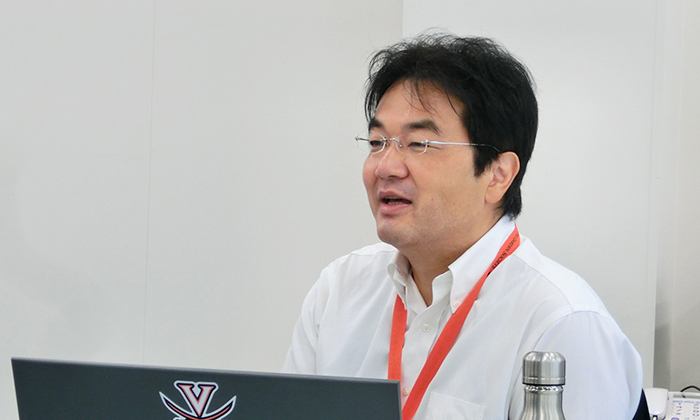
We are aiming to develop a business using the technology of microwave power transmission, which converts electric power into microwaves and transmits them. We were introduced to Kyoto-iCAP by Professor Masaki Shinohara of Kyoto University, who is a leader in this field, and has joined us as a scientific advisor. Professor Shinohara has been conducting research on the practical application of microwave power transmission, including research on space solar power generation satellites that generate solar power in space and transmit power to the ground via microwaves, and SPT intends to develop ground applications of this microwave technology.
In fact, there is still no law regarding wireless power transmission, and it is expected to be finally institutionalized in FY2020. Since the system is targeted at unmanned indoor areas, we plan to start by providing "Power Gate," a wireless power transmission system device that can be used in factories and other such locations. This device can be used to supply power to the picking instruction system, eliminating the need for battery replacement and recharging. In addition, we also envision applications for sensors that detect abnormalities in machine tools for which batteries or wired power supply is not suitable.
In order to differentiate ourselves from our competitors, we plan to specialize in factories and other businesses where the power used is high output. There are a wide range of applications for wireless power supply. Since the basic technology is based on telecommunications and broadcasting, competition will be fierce. If the technology becomes widespread, it could quickly become the standard, so we will continue to build intellectual property and collaborate with partners as needed so that we can continue to be the front runner.
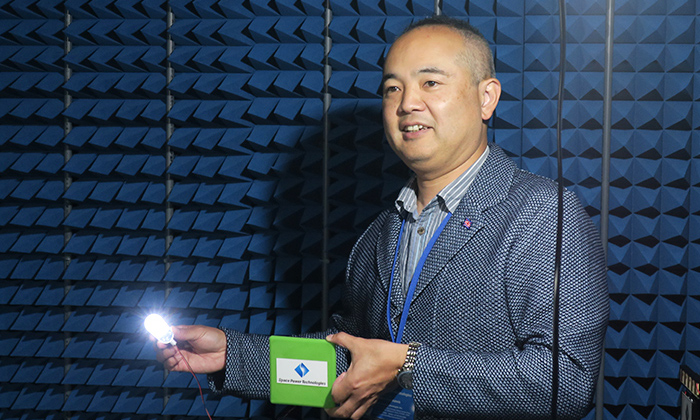
The most attractive thing is that I can work proactively. The wireless power supply business itself is an area where laws are not yet in place, so I find it rewarding to be able to work on it. It is challenging because it is a transitional period.
What we are dealing with is technology that will change society. It is still in its infancy, but I am happy to play a central role in giving it shape in the future.
We are looking for engineers who have original technology, have applied for many patents, or have many ideas to try out. We believe that new things are created by combining different industries, so we find people who are not bound by existing technologies or areas attractive.
If the purpose of starting a business and the direction of your approach toward it are right, you will surely find people who will cooperate with you. If you can communicate what you want to do and find people who will support you while you take action, I am sure you will get off to a good start.
(Interviewed in June 2020. Affiliations, positions, etc. are as of the time of the interview)
Space Power Technologies (SPT) was established based on the grand vision of Professor Masatake Shinohara of Kyoto University's Research Institute for Sustainable Humanosphere to wirelessly transmit power generated by space solar power satellites to the ground. To realize this grand vision, the company is led by President Minoru Furukawa, who has achieved the world's highest level of power receiving antenna efficiency through his own research, and is working hard every day to make the microwave wireless power transmission system practical on the ground and to implement its convenience in society.
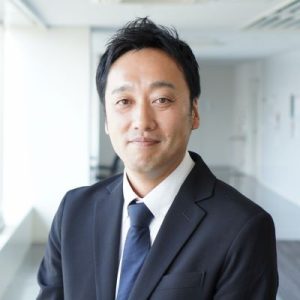
Shogo Otani
ECC-iCAP: Entrepreneur Candidate Club (URL : ) https://www.kyoto-unicap.co.jp/ecc-icap/)

Space Power Technologies, Inc. website
Please feel free to contact us if you have any questions or concerns.
Inquiry Form